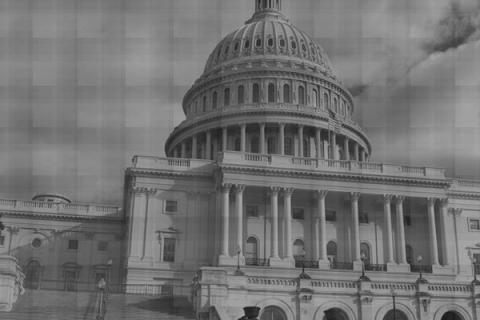According to various reports, Sarah Palin may be getting paid at least $75,000 to speak at the nation's first, official Tea Party Convention in Nashville, Tennessee. If confirmed, such a development would fuel skeptics who have long criticized the motivation and make-up of the movement.
While Palin's aides and conference organizers will not provide a response, Politico has uncovered documents which reveal that the former Alaska governor charges $100,000 per speech, with a $25,000 discount for West Coast appearances. While she waives these fees at some charitable events, it appears as if the first meeting of an emerging grassroots movement is not one of those. Tickets run $549 for the Nashville convention, and $349 if fans wish only to see Palin. In addition, Palin's speech will be closed to the press.
If Palin is indeed being handsomely paid to serve as the keynote speaker for a grassroots gathering, is the Tea Party already up for sale?
Sure, retired politicians often make a killing in the speech arena. Former President Bill Clinton made more than $10 million in 2007. Former Arkansas governor and presidential candidate, Mike Huckabee, charged $25,000 a speech last year. However, when it comes to speaking in front of political audiences, most retired politicians don't charge.
Former Governor Palin certainly retains the right to charge any amount she deems appropriate, but possibly charging up to $100,000 to address the Tea Party crowd raises a number of troubling questions for the budding movement. For example, who would be responsible for paying such an exorbitant price? It is highly unlikely that the common folk would possess the means or the will to dish out such a significant sum of cash for a single speech. Who's paying up to $549 a ticket to attend the convention? Again, most "commoners" would find it difficult, especially during these harsh economic times, to pay that much to attend a political conference. Also, why is a grassroots speech closed to the press? Isn't the movement clamoring for greater transparency in political affairs?
Again, if these allegations are authentic, and so far, they have not been falsified, then the Tea Party crowd could already find itself in a battle for its soul. On the surface, it would appear that affluent, shrewd, and elitist kingmakers are effectively hijacking the grassroots movement, a claim that critics and skeptics have long levied against the Tea Party protestors. It would appear that a movement claiming to represent We the People, in reality, is catering to the wealthy, the influential, and the celebrity personalities. It would appear that a movement claiming to espouse certain basic principles, ideas, and policies is becoming a movement of big name politicians and Fox News contributors. It would appear that a movement desperate for greater government transparency is now limiting public scrutiny for the sake of political expediency.
Unfortunately, this is a trend that has been long in the making, as the former Co-Founder of the original Tea Party laid out in a revealing article. I also outlined three, potential paths for the Tea Party movement, and at this time, it appears as if it is going down the path of "style over substance".
Besides the Sarah Palin controversy, another aspect of the upcoming Tea Party convention is especially troubling. It would appear that no Democrats or Independents will be featured as prominent contributors. The three main speakers, Sarah Palin, Michelle Bachmann, and Marsha Blackburn, are all prominent Republicans. We heard hardly a peep out of these individuals when President Bush (and a mainly Republican Congress) added $5 trillion to the national debt, devalued the Dollar by approximately 20%, bailed out Wall St, and grew the size & power of the federal government. The impression of hypocritical partisanship remains one of the main stumbling blocks to libertarian leaning Republicans, Independents, and Democrats observing the current Tea Party movement.
If the Tea Party movement wishes to expand its following, broaden its appeal, and develop greater credibility, then it should take a long, hard look at the goings on in Nashville, Tennessee. For all its grassroots potential, it is rapidly morphing into a well-oiled business machine, funded and directed by corporate interests and political bigwigs. Before it's too late, perhaps the Tea Party faithful should make it abundantly clear:
The Tea Party is not for sale.
